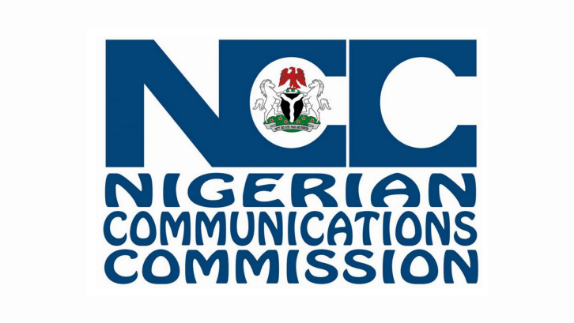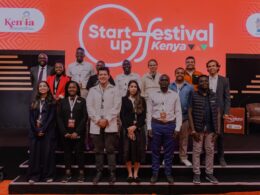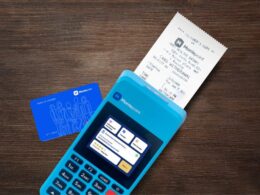In a gleaming conference room in Lagos, Olugbile Holloway carefully examines a bronze figurine that dates back centuries—one of over 200 ancient Nigerian artifacts that will soon live forever in digital form. As Director General of Nigeria’s National Commission for Museums and Monuments, Holloway is overseeing an ambitious project that could fundamentally change how Africa preserves and shares its cultural heritage.
The initiative, a partnership between telecommunications infrastructure company IHS Nigeria and the federal government, has created Nigeria’s first digital museum of antiquities. But this isn’t just about putting old objects online—it’s about addressing a profound challenge facing post-colonial Africa: how to reclaim, preserve, and democratize access to cultural heritage that has been scattered across continents and locked away in foreign institutions.
The Heritage Crisis
For decades, Nigeria’s most precious cultural artifacts have been housed in museums thousands of miles away. The British Museum alone holds thousands of Nigerian pieces, including the famous Benin Bronzes, many of which were taken during colonial rule. Meanwhile, younger Nigerians—in a country where 70% of the population is under 30—have had limited access to their own cultural history.
“The vision behind this museum is to make Nigeria’s heritage more accessible to a wider, younger, tech-savvy audience,” Holloway explains. The timing is crucial: as Nigeria undergoes rapid digitization, with over 171 million mobile subscribers and telecommunications contributing 14.4% to GDP, there’s an opportunity to use this digital infrastructure for cultural preservation.
An Unlikely Partnership
The collaboration between IHS Nigeria—part of the world’s largest independent telecom tower company—and Nigeria’s museum commission might seem unusual. But it reflects a growing trend of African businesses taking responsibility for social impact beyond their core operations.
“Today is a proud moment for us as we see the digital museum come alive,” says Mohamad Darwish, CEO of IHS Nigeria. “As a company deeply rooted in Nigeria, we are excited to have played a key part in this groundbreaking effort to preserve and promote Nigeria’s cultural heritage.”
The partnership emerged from Nigeria’s broader push under President Bola Ahmed Tinubu’s administration to leverage technology for national development. The digital museum is the flagship project of the NCMM’s new Digital Culture Initiative, which aims to position Nigeria as a leader in cultural technology across Africa.
Technology Meets Tradition
The digital museum uses advanced 3D scanning technology to create detailed virtual replicas of physical artifacts, allowing users worldwide to examine pieces that might otherwise be accessible only to researchers or museum visitors in Lagos. Each digital object comes with comprehensive educational materials, creating an immersive learning experience.
The approach addresses multiple challenges simultaneously: preserving fragile artifacts from physical deterioration, making collections accessible to Nigeria’s diaspora community, and providing educational resources for schools across the country where traditional museum visits might be logistically impossible.
“This historic event marks a transformative milestone in the preservation, promotion, and accessibility of Nigeria’s vast cultural heritage,” noted Hannatu Musawa, Minister of Art, Culture, Tourism and the Creative Economy. “For the first time, authentic Nigerian antiquities will be showcased in an innovative digital space.”
The Bigger Picture
The initiative comes at a critical moment for African cultural preservation. As urbanization accelerates and traditional communities face displacement, there’s growing urgency around documenting and preserving cultural knowledge before it disappears.
The Nigerian project could serve as a model for other African nations grappling with similar heritage preservation challenges. Countries like Kenya, Ghana, and South Africa are watching closely, considering their own digital heritage initiatives.
Moreover, the partnership demonstrates how Africa’s growing tech sector can be leveraged for cultural goals rather than purely economic ones. As African startups and infrastructure companies mature, there’s increasing pressure—and opportunity—to contribute to broader societal challenges.
Global Implications
The digital museum launch reflects broader global movements around cultural repatriation and heritage accessibility. While physical artifacts remain in international collections, digital technology offers a pathway for countries to reclaim virtual ownership of their cultural heritage.
The timing aligns with growing international discussions about returning African artifacts to their countries of origin. Digital preservation creates comprehensive records that could support future repatriation claims while immediately providing access to communities separated from their heritage.
For Nigeria’s young population, the digital museum represents something more profound than technological innovation—it’s a bridge to understanding their place in a rich, complex history that extends far beyond colonial narratives.
Looking Forward
As the digital museum prepares for its global launch, the partnership between IHS Nigeria and the NCMM is already planning expansions. Future phases could include artifacts from other Nigerian museums, virtual reality experiences, and educational programs for schools across Africa.
The success of this initiative will likely influence how other multinational companies operating in Africa approach cultural responsibility. As Darwish notes, the project “reinforces our commitment to the innovative use of technology to promote education, transform communities and drive economic growth.”
In an era where technology often seems to distance people from their roots, Nigeria’s digital museum offers a different vision: technology as a tool for cultural connection, understanding, and pride. For a continent whose heritage has too often been defined by others, that represents a kind of digital sovereignty—the power to tell your own story, on your own terms.












